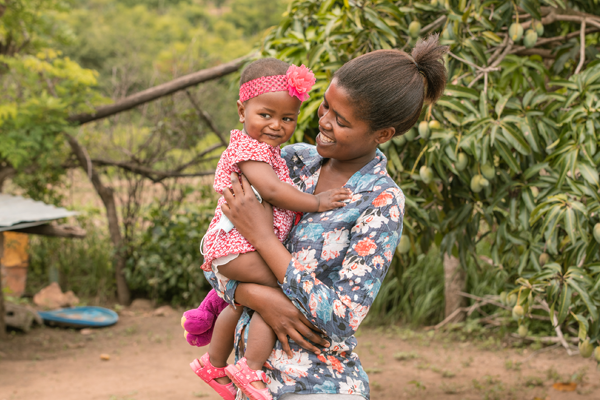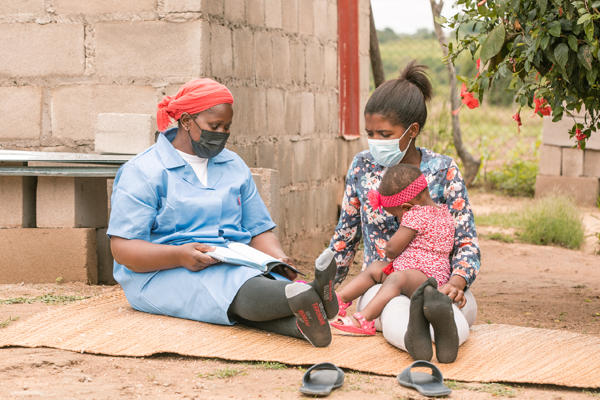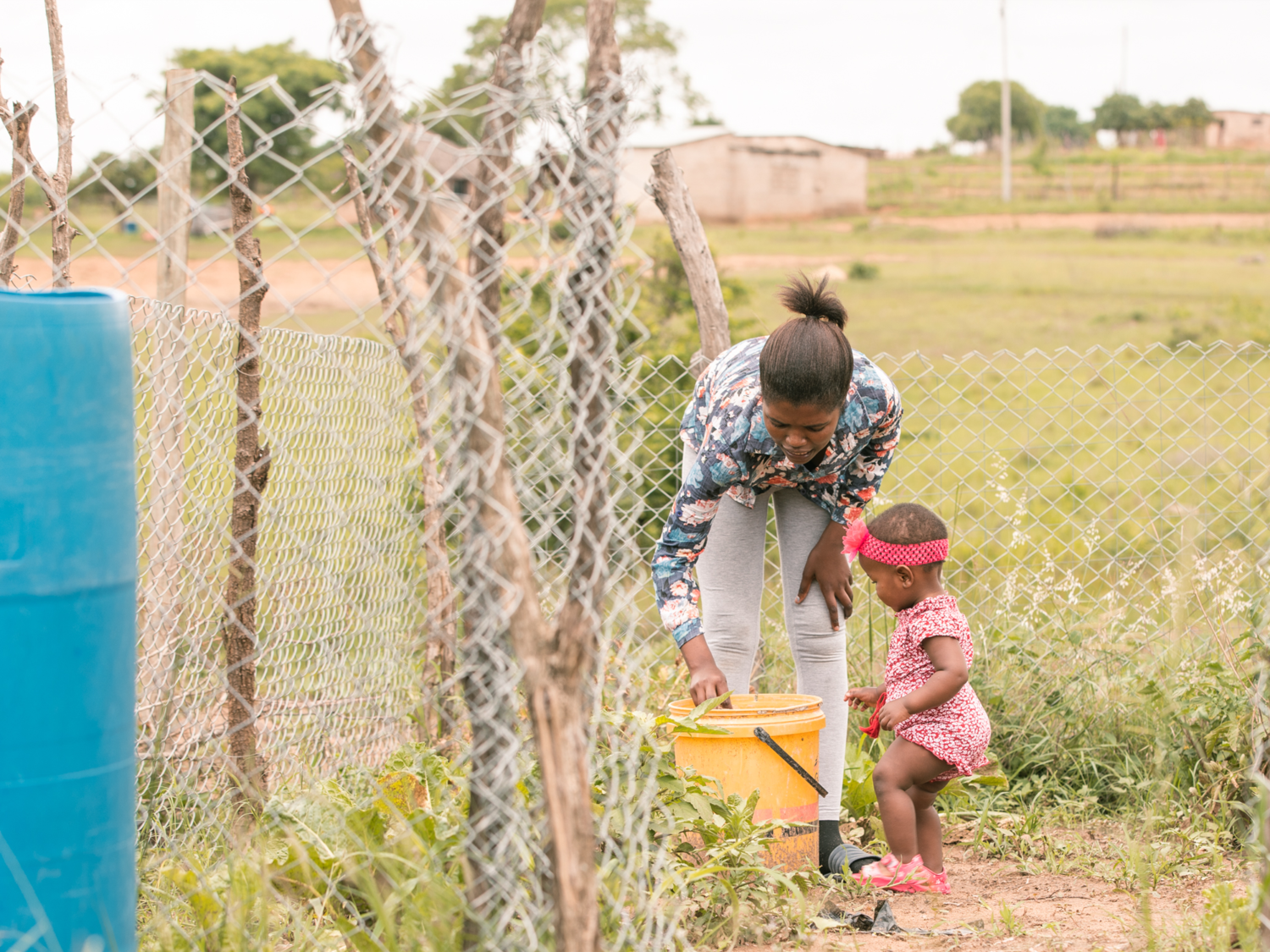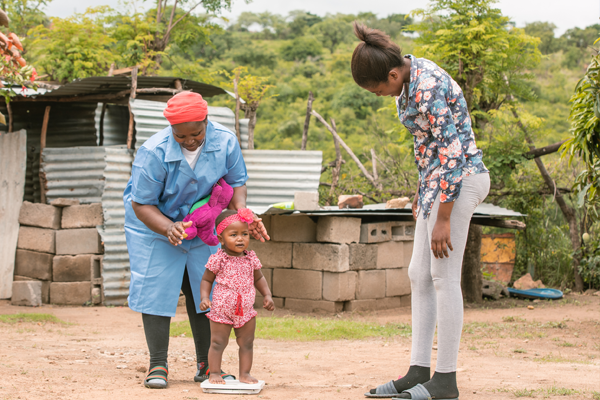
“I love the work I do to help empower mothers to take the best possible care of their babies.”
Bonsile, 22, was preparing for her final examinations at school in Eswatini’s Hhohho region, when she got pregnant with her first child. She had no option but to drop out of school while her classmates continued to graduation. “I wanted to continue my studies but had to pause suddenly to take care of the baby,” Bonsile explains. “I felt alone. It was a very stressful time.”
UNICEF is supporting the training of community health volunteers in the region by local nurses, to support mothers like Bonsile in essential early childcare. One of those volunteers is Winele, who is passionate about the value of the initiative for the local community. “I felt really empowered after receiving the training on newborn care,” says Winele. “I was particularly concerned by the country’s maternal and neonatal mortality rates. The training has helped me encourage mothers to not miss clinic appointments and to take the correct supplements.”
Winele met Bonsile when she was four months pregnant. Winele recalls, “Bonsile was still at school and didn’t know much about how to care for a newborn.” She supported her with vital information about breastfeeding, hygiene and the importance of good nutrition during pregnancy.
“I had previously heard a lot of misinformation about pregnancy and childcare, but having a community health worker supporting me helped me feel prepared” describes Bonsile. “She gave me the knowledge I needed to take care of my child.”

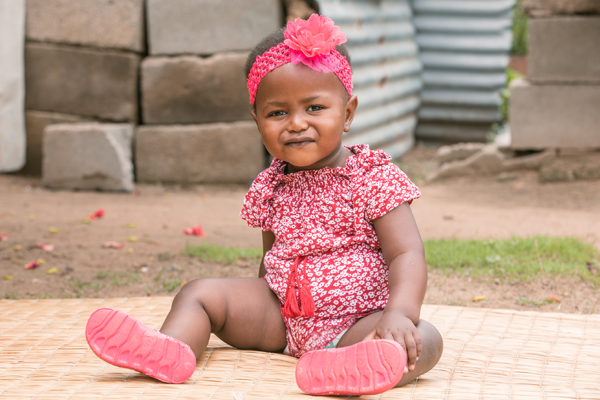
Under the support of the programme, Bonsile was delighted to welcome a healthy daughter, Unesu: “I was so happy to see my baby for the first time. It felt like the stress of the pregnancy was all worthwhile!” Now one year and four months old, Winele describes Unesu as “a very healthy, strong little girl” having continued to attend regular check-ups to monitor her growth since birth.
Without the support of health workers like Winele, many young mothers in the area risk facing their pregnancies alone. “We have a high rate of teenage pregnancy here. Many of them feel ashamed or scared to be judged by the community and end up resorting to abortion,” she describes. The presence of community healthcare workers is helping to educate these young mothers and best prepare them to care for their children. “I love the work I do to help empower mothers to take the best possible care of their babies. I believe this will significantly decrease maternal and neonatal mortality in the community.”
Bonsile credits the community health programme with much of her and Unesu’s progress. “This was my first pregnancy and that alone was a huge challenge. I think having someone to support me throughout my journey with pregnancy is the reason my baby is healthy.”
Bonsile finally feels optimistic about the future for herself and Unesu, and even has plans to return to school next year herself. She is determined to set a good example for her daughter: “I now feel empowered to give her a good start in life. I want her to grow up and be successful in whatever she does.”
